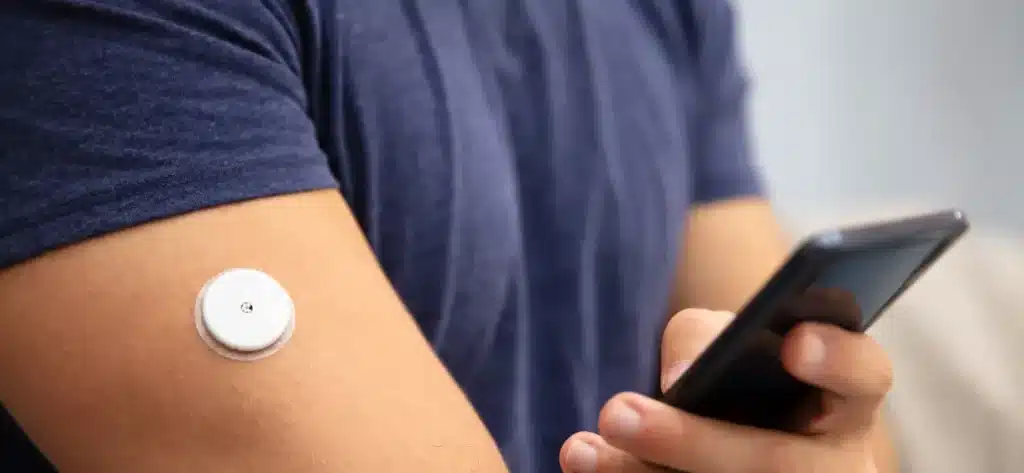The use of Continuous Glucose Monitors (CGMs), which provide real-time insights into glucose levels without requiring frequent fingerstick blood tests, has revolutionized the management of diabetes. In the past, CGMs needed a prescription from a medical professional, but new developments have made these devices more widely available to people without a prescription. We’ll look at the availability, advantages, and drawbacks of getting CGMs without a prescription in this article.
Accessible Without a Doctor’s Order
CGMs were previously only available with a prescription, necessitating a consultation with a healthcare professional to acquire access. However, some CGM manufacturers have released over-the-counter (OTC) versions of their devices in recent years, making it possible for people to buy CGMs without a prescription. Usually, retail pharmacies, internet merchants, or the manufacturer directly sell these over-the-counter CGMs.
Advantages of OTC CGMs
For diabetics, the availability of over-the-counter CGMs has various advantages:
Convenience
Without a prescription or a visit to a healthcare professional, people can purchase and use an over-the-counter CGM with ease.
Accessibility
For people who want to manage their diabetes on their own or who do not have easy access to healthcare providers, over-the-counter continuous glucose monitors (OTC CGMs) provide continuous glucose monitoring technology.
Empowerment
By offering real-time insights into glucose levels and enabling proactive blood sugar management, over-the-counter continuous glucose monitors (OTC CGMs) enable people with diabetes to take charge of their health.
Cost Savings
For people who wish to pay for their diabetes care themselves or who do not have insurance coverage for prescription CGMs, over-the-counter (OTC) CGMs may be more economical.
OTC CGM Considerations
Although over-the-counter CGMs provide greater accessibility and convenience, there are a few crucial factors to take into account for anyone thinking about utilizing these devices:
Accuracy
Compared to prescription CGMs, OTC CGMs may have differing accuracy requirements. Before making a purchase, people should carefully consider the accuracy and dependability of OTC CGMs.
Assistance and Education
While getting a prescription for continuous glucose monitors or CGM, patients may not receive the same degree of assistance and education from OTC CGM manufacturers. People should make sure they have access to the tools and assistance they need to use their CGMs correctly and interpret their glucose readings.
Insurance Coverage
People who buy over-the-counter CGMs may have to pay out of pocket for these devices if their insurance plan does not cover them. When choosing between over-the-counter and prescription CGMs, people should take their insurance coverage and financial circumstances into account.
Regulatory Compliance
OTC CGMs have to be safe and effective according to regulations, however, before making a purchase, people should make sure the gadget is FDA-approved and upholds quality standards.
Explore More The Limitations of Continuous Glucose Monitors: What You Should Know
FAQs
Is a prescription required to obtain a continuous glucose monitor (CGM)?
Indeed, several manufacturers of continuous glucose monitors (CGMs) provide over-the-counter (OTC) versions of their devices, enabling people to buy CGMs without a prescription.
Where can I purchase an unprescription CGM?
Retail pharmacies, internet merchants, and the manufacturer’s website are the usual sources for over-the-counter CGMs.
Are over-the-counter CGMs just as accurate as those that require a prescription?
Although OTC CGMs must adhere to safety and efficacy regulations, consumers should confirm the precision and dependability of OTC CGMs before purchase.
How much would an OTC CGM cost? would my insurance pay for it?
People should check with their insurance provider to find out what alternatives they have for coverage regarding OTC CGMs as insurance coverage varies.
Does using an OTC CGM require any specific training or education?
People should make sure they have access to tools and support for appropriate CGM use and glucose data interpretation, even if OTC CGMs might not come with the same amount of support and instruction as prescription CGMs do.
Are OTC continuous glucose monitors appropriate for all diabetics?
For those who are comfortable managing their diabetes on their own and are knowledgeable about glucose monitoring, over-the-counter continuous glucose monitors or CGMs might be a useful option. On the other hand, those with particular medical issues or complicated diabetic care demands could need medical advice.
If I’m nursing or pregnant, can I use an over-the-counter CGM?
Before using an OTC CGM, women who are pregnant or nursing should speak with their healthcare professional to be sure it is safe and suitable for their particular situation.
Is routine calibration of OTC CGMs necessary?
To keep accuracy, OTC CGMs may need to be periodically calibrated using fingerstick blood glucose readings. When it comes to sensor maintenance and calibration, users should adhere to manufacturer instructions.
If I’m not happy with an OTC CGM, can I return it?
OTC CGM return policies can differ based on the manufacturer or merchant. Before making a purchase, people should read the return policy to learn about their choices if they are unhappy with the product.
Is there an age limit on buying over-the-counter CGMs?
All ages may be able to obtain over-the-counter CGMs, but users should confirm with the manufacturer or merchant that the device is appropriate for their age and health.
In Summary
For those who are managing their diabetes, the availability of continuous glucose monitors (CGMs) without a prescription increases accessibility and convenience. With the help of over-the-counter CGMs, people can effectively control their diabetes by keeping an eye on their blood sugar levels in real-time and making well-informed decisions. To make sure they get the best solution for their needs, those thinking about OTC CGMs should carefully consider aspects including accuracy, support, insurance coverage, and regulatory compliance. Through the judicious use of OTC continuous glucose monitors (CGMs) and careful attention to pertinent issues, people can optimize their diabetic care and elevate their standard of living in general.


